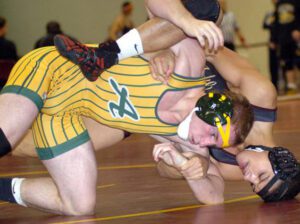Usually, when a player progresses through the youth leagues, their coaches will group them into two categories: Short and Tall.
Coaches will make the shorter players guards and the taller players forwards. Although I think the split is an antiquated way to divide players, I believe it led to the development of the Small Forward position. When coaches talk about “matchup nightmares” usually they are talking about the small forward position.
Some of the early youth league guards grow to be much bigger than the original forwards. The first youth league forwards grow very little but developed their post game. So now we as coaches have a matchup decision to make. Do we go with the tall guard who can shoot, pass, and rebound? Or do we go with the short forward who can rebound, post-up and block shots? I believe the first small forwards were one dimensional.
As the basketball has developed over the years, the small forward has become the most versatile position on the court.
Let’s break down the pivotal role that a small forward can provide to a teams success. If the player is developed properly, in a pinch, you can use a small forward as a point guard. In some circles, the player is called a “point forward'” – a strong athletic forward who is an excellent passer with a high basketball IQ. The extra length a small forward provides an opposing guards job much more challenging.
Taking this position one step further, a small forward can often go to the block and provide an extra dimension to a team. Small Forwards may not have the height to play with all the power forwards and centers, but they can use their quickness to get better positioning on the block, or they can stretch them out with their shots.
Although I think playing defense is essential for all positions, a small forward has to be a good defender.
The versatility of the position requires it. One night a small forward could be guarding a guard, and the next night he/she could be guarding a forward.
I would argue that the small forward position is the most important position. Sure, a point guard controls the games and creates plays and a center bangs down low and gets rebounds, but a small forward has to adapt their game every night. Are they playing down low or shooting and driving? Who do they match up with on defense that night? If you search for the greatest small forwards of all-time, players who make the list are among some of the best players of all time at any position. I would say small forwards are not only pivotal, but essential to a teams success.
CoachUp is the safest and easiest way to find a coach for personalized training. With our 100% money-back guarantee and vetted coaches, anyone can achieve their full athletic potential. Find your perfect coach today and become the athlete you want to be!
How useful was this post?
Click on a star to rate it!
Average rating 4 / 5. Vote count: 1
No votes so far! Be the first to rate this post.




